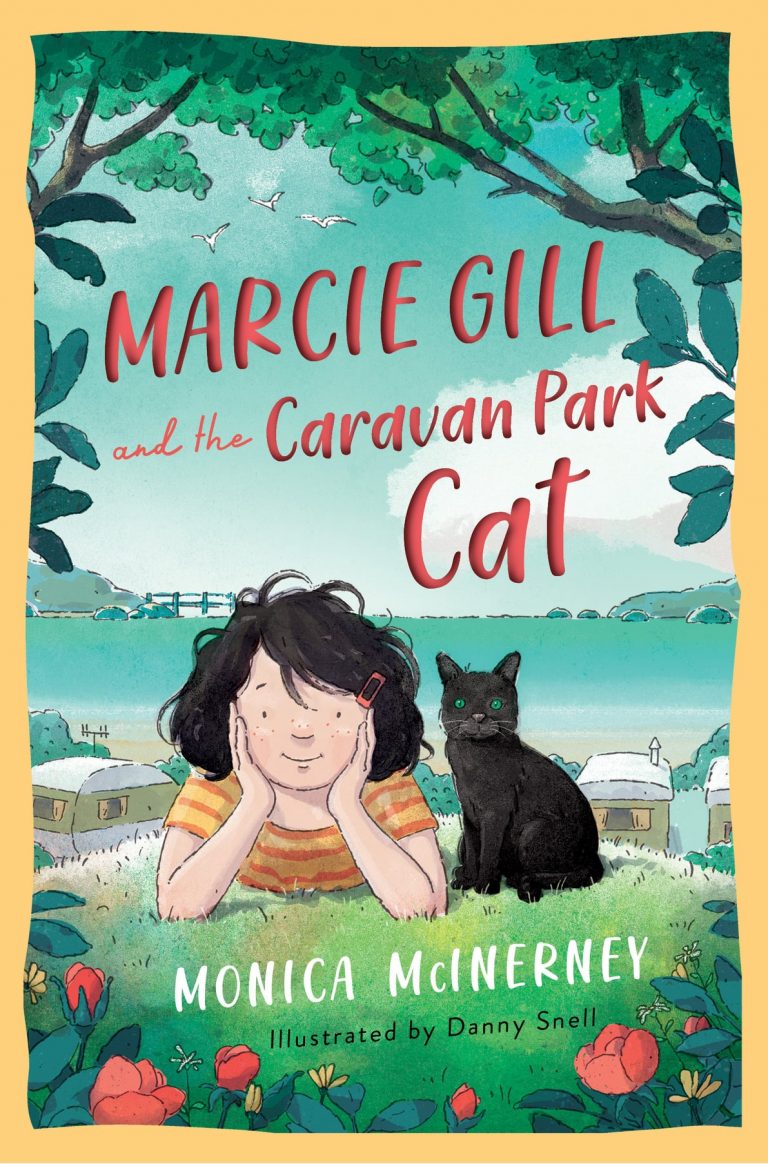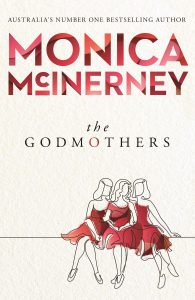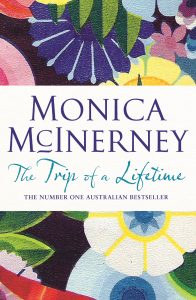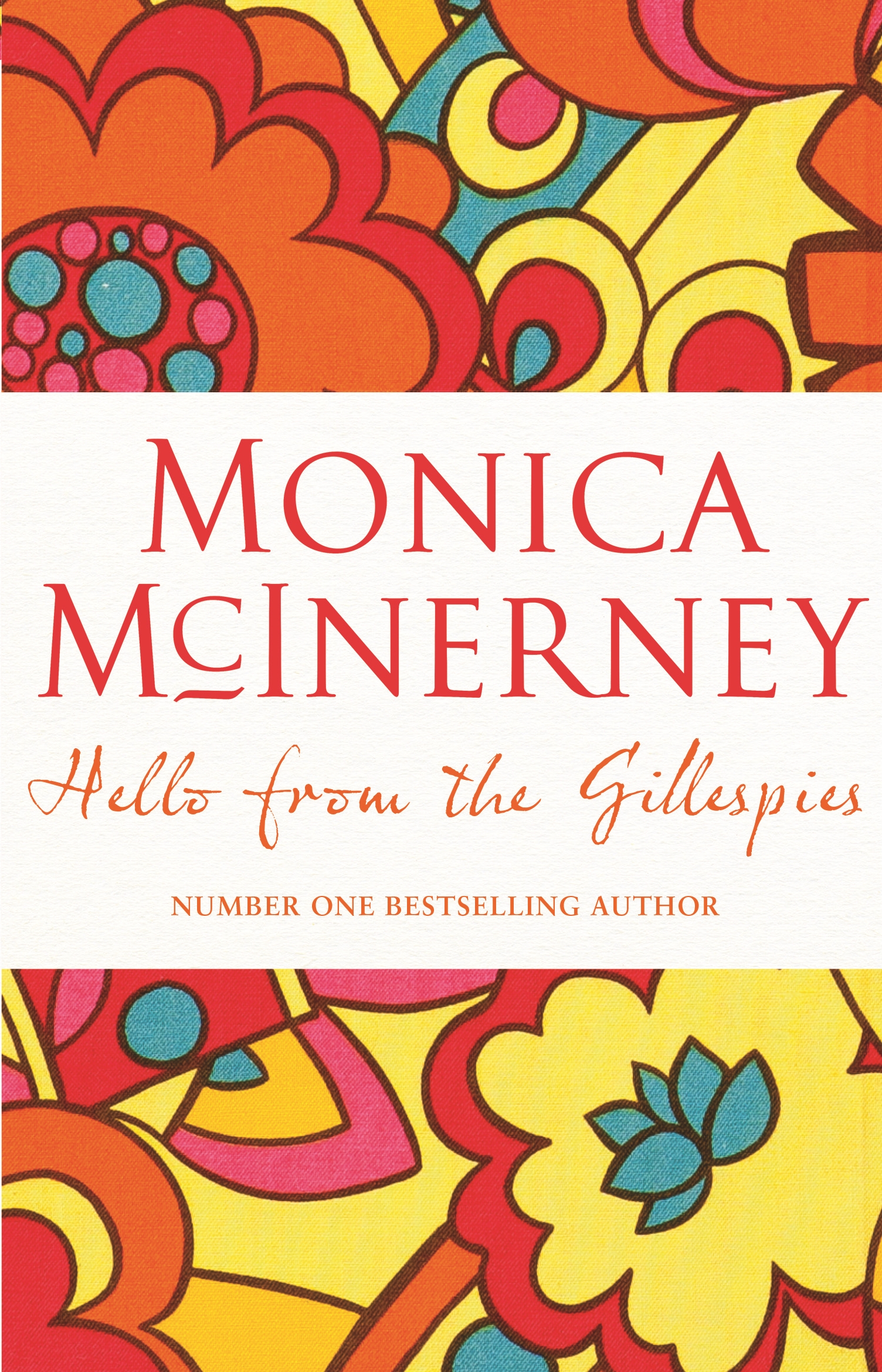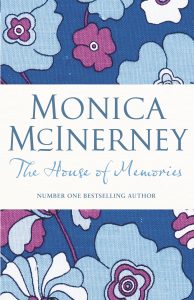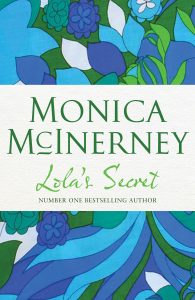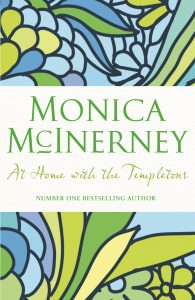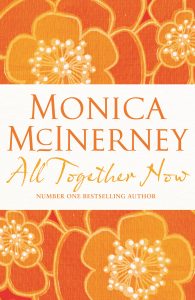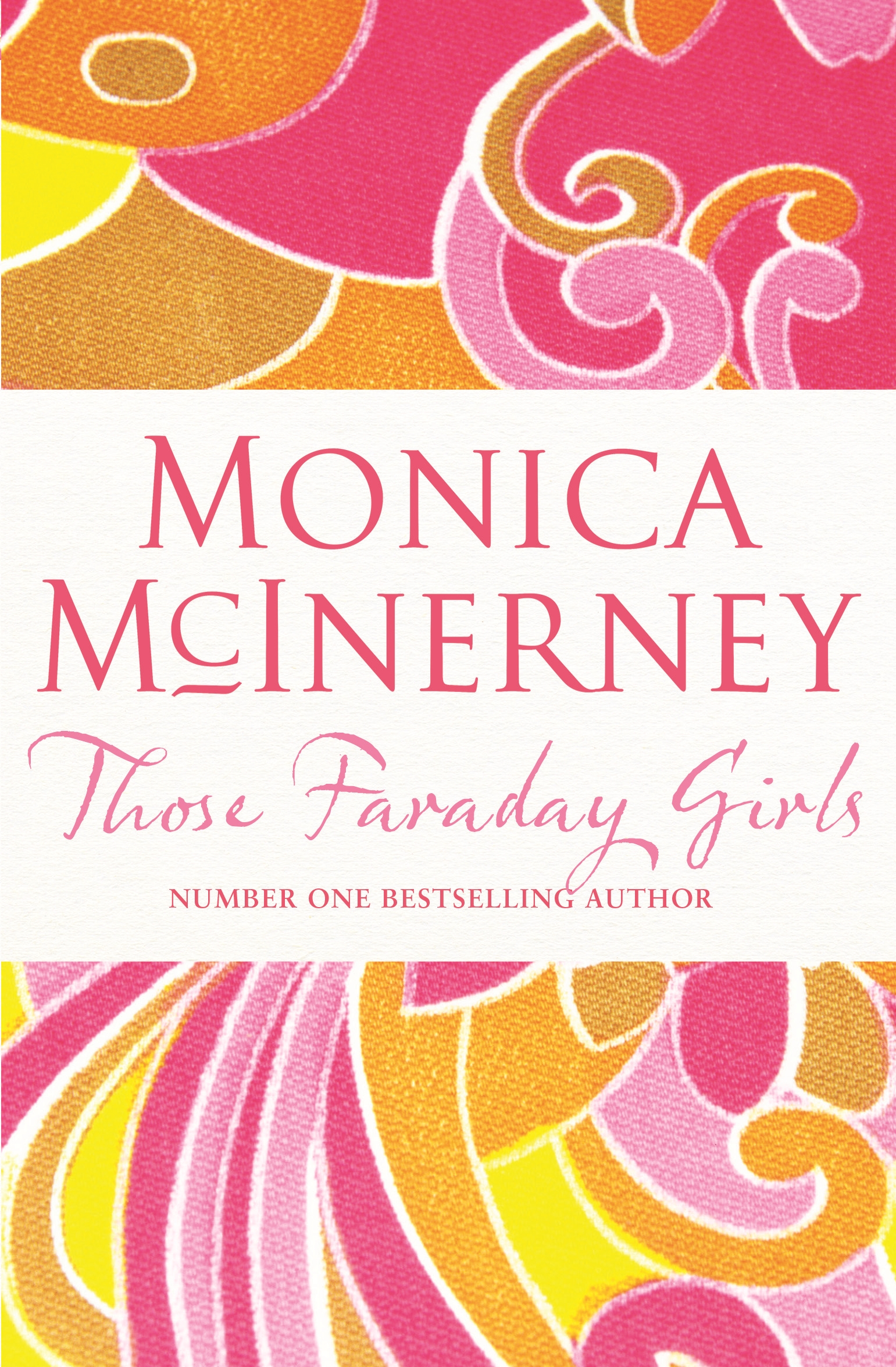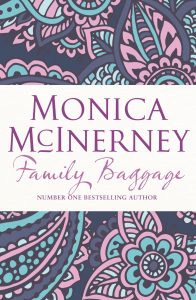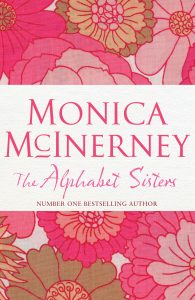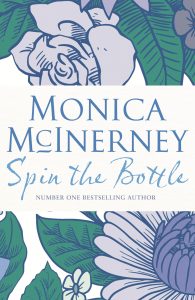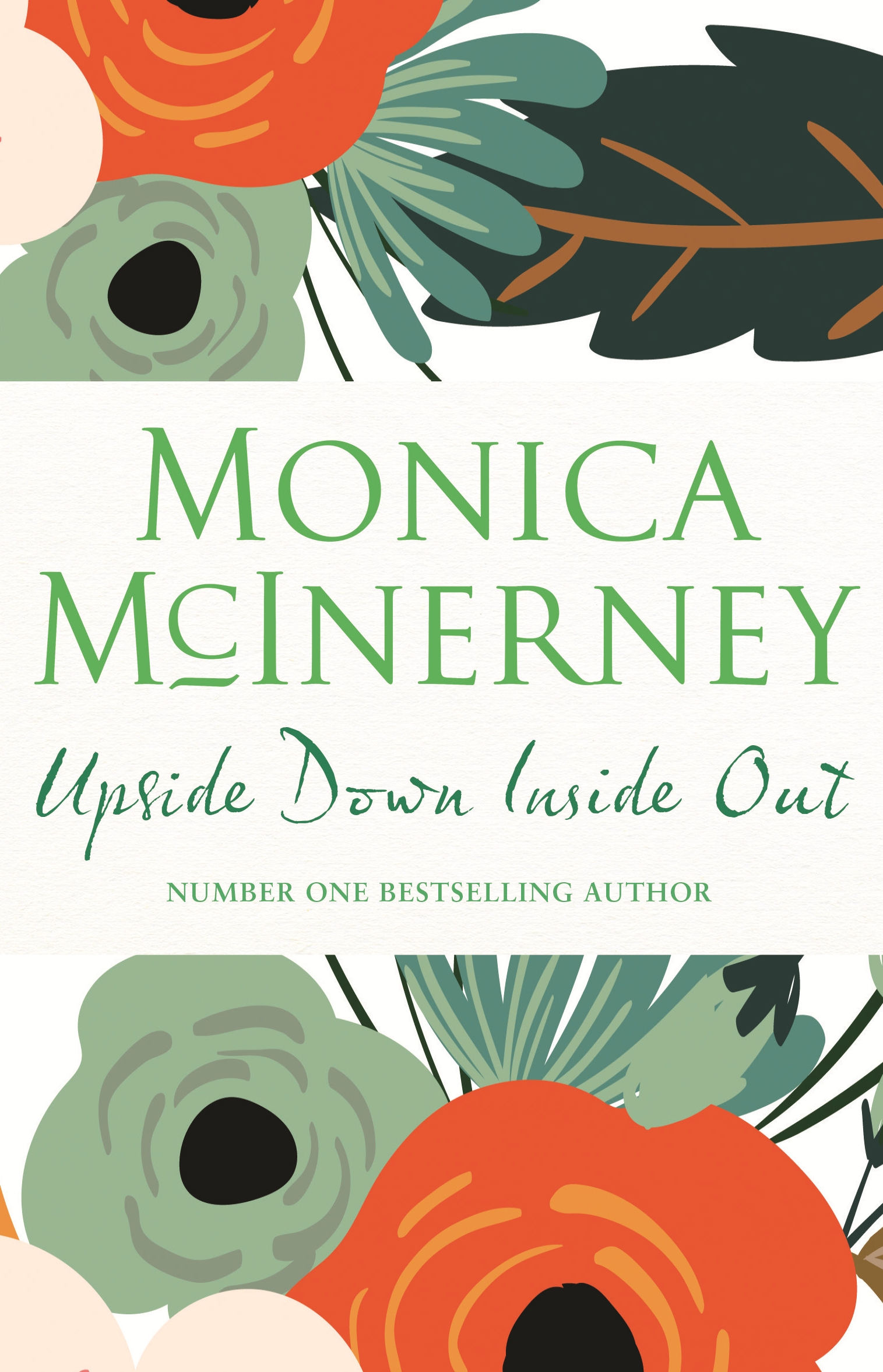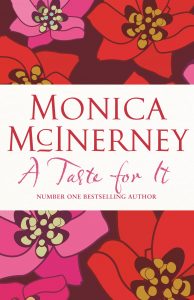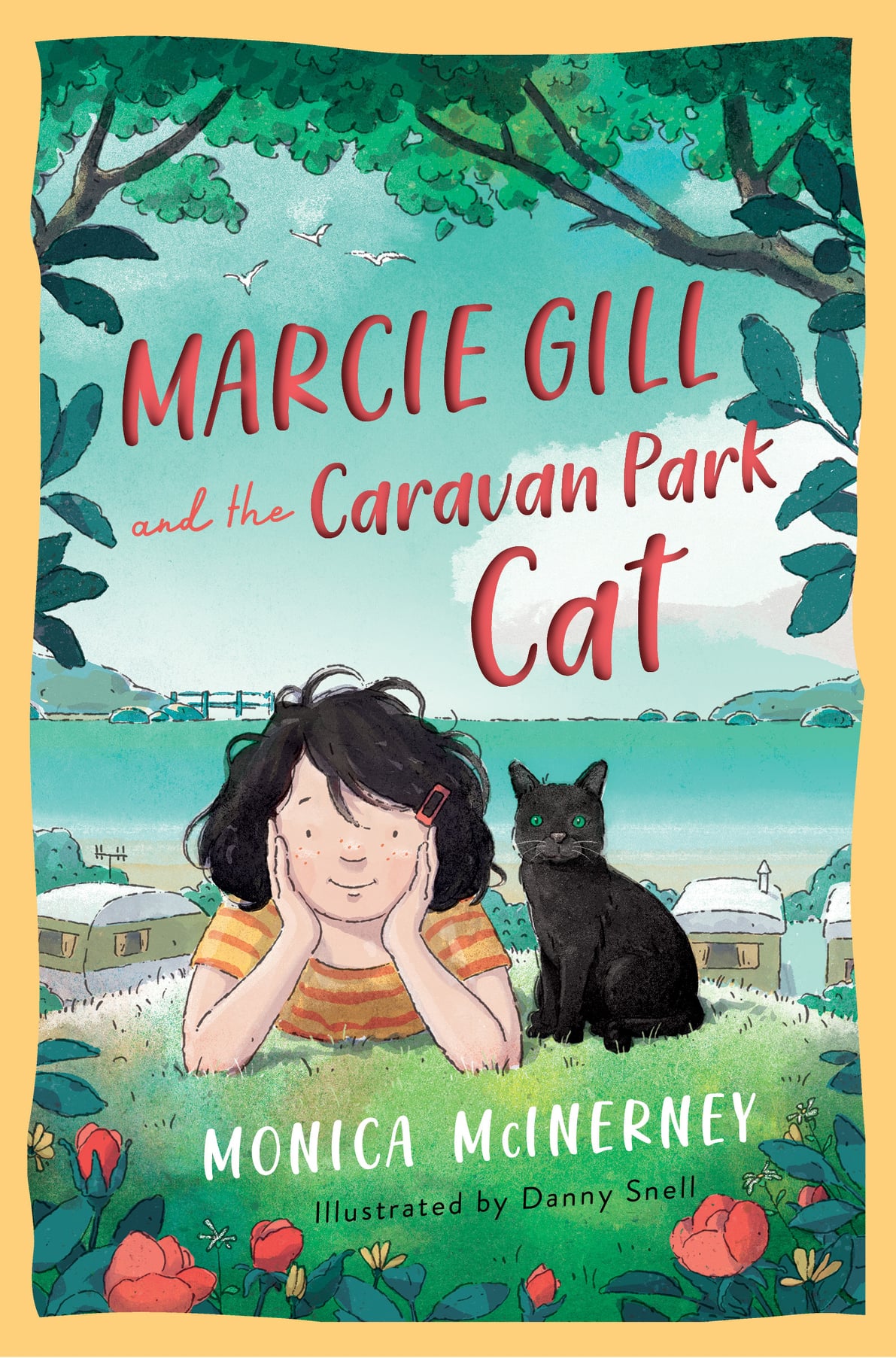Fiction and Families
I’ve just finished a mini book tour in Australia, the first time I have toured without a new book to talk about. Instead, I looked back at all twelve of my books – eleven novels and a collection of short stories – written over the past 20 years. My tour coincided with my publisher Penguin Random House rejacketing all dozen in beautiful vintage-style covers.
Before I left home in Ireland, I was tidying my attic office and found a folder of paperwork my mum had sent me years ago, including my reports from my school days in Clare, South Australia. Among them was my first report – grade 1, aged 5. My teacher had commented, ‘Monica is extremely interested in everything.’
Forty-eight years later, I’ve realised nothing has changed. If anything, being a writer for the past two decades has only sharpened that curiosity, or to call it by its other name, nosiness. I can’t even apologise, because I believe it’s one of the key ingredients to being a writer. To want to invent fictional people, you need to be very interested – extremely interested, even – in real people.
When I meet new people and they hear I’m an author, I’m often asked what kind of books I write. I used to sum them up as ‘family comedy dramas.’ More recently I’ve found myself saying, ‘Big books about messy families.’
At the front of my sixth novel, Those Faraday Girls, I have a Chinese proverb that reads: ‘No family can hang out the sign, “Nothing the matter here”.’ I could have put that in front of all my books.
With each of my stories, I invent a fictional family and then I set off an emotional explosion of some kind in their midst, which propels the plot into action. In The Alphabet Sisters, for example, I explore a three-year family feud that has followed a romantic betrayal. In At Home with the Templetons, a dramatic accident sets two families against each other. In The House of Memories, an unspeakable tragedy involving a child sends out long-lasting ripples. In Those Faraday Girls, the revelation of a long-kept secret about a missing aunt sparks all sorts of drama.
I am fascinated by family life, in reality and in fiction. In each of my books, via my fictional families, I’ve been able to explore families of all different shapes and sizes – large and small, blended families, single parent families, foster families. I’ve also been able to confront some of my own greatest fears, concerns and problems. It’s one of the joys of being a writer. I not only save a fortune on therapists’ bills, but with each of my books I’ve been able to climb deep inside my own heart and mind to discover what really matters to me. I think this also helps me understand the things that matter to other people as well.
My books aren’t factually autobiographical, but they are always emotionally autobiographical. I write about love, grief, secrets, lies, the ties and tensions between siblings, the links between generations, all of which I’ve experienced in real life.
I’m always so touched when I receive emails and letters from readers of my books, telling me that a scene or character or situation struck a chord with them. It reminds me that we humans are all so similar: we all make mistakes, get hurt, hide the truth from one another. Behaviour like that makes real life tricky at times. But it is glorious material for a novelist. I’m also intrigued by the layers within a family, how information can be exchanged or hidden, the different ways family members react to the same situation.
I owe much of what I do now as a writer to my childhood in the Clare Valley of South Australia, growing up in a family of nine. A big family is a wonderful way to learn about the world – so many different personalities living under the same roof, sharing joys, happy times, sad times and tense times. My dad worked as the railway stationmaster, and I loved the fun of visiting him in the station, his workplace, just down the road from our big family house. Mum did her best to tame the seven of us, before giving up and taking a job in the local library. My three brothers, three sisters and I were close as children and we’re all still close now. Growing up, we always had relatives and friends staying or visiting, a constant flow of different personalities for me to observe and conversations to eavesdrop on. All the drama and comedy that made up my childhood is what helps me write my books now. It’s no coincidence that my stories are each filled with a large cast of characters, complicated family dynamics, plenty of laughter and comedy alongside the sad and difficult times. I know all that. I’ve felt all that.
I started my writing career in 1997 with romantic comedies, because at the time I was newly married, the world seemed so full of promise, glowing almost. But as I got older, sadder things happened to me. My father died in 2000. Even all these years later, I still feel that grief, still sometimes get a longing to ring our old home number in Clare and have him answer, ‘Gidday Mick Mouse,’ my family nickname. When he died, it felt as though our family solar system had tilted. We needed to re-align all of our planets without him. The grief I felt about my Dad dying has filtered into more than one of my books.
I’ve felt other sorrows too. I’ve lost close friends in tragic circumstances. Watched feeling helpless as other friends and family members have suffered losses or had troubled times in their own lives. I’ve felt despair, loneliness, anxiety, anger, jealousy and confusion. Amidst those difficult times, though, I’ve either found or somehow been given joyous times. New nieces and nephews. Great friendships. The wonders of travel. The constant, reassuring, loving presence of my husband, my mum, my brothers and sisters, my friends. Even living on the other side of the world from my family, I still feel like I’m in the middle of them, waking up most mornings in Dublin to find sometimes dozens of WhatsApp messages or text exchanges between them all, often so funny they could be lines from a sit-com.
All of those experiences go into my books. The joy I find in travel, in family, in love, in life. The sorrows of life. The drama, the disappointments, the disagreements. Sometimes they can be resolved, but not always. I’m an optimistic person but I’m also realistic. I know that not all endings can be happy. What I always try to be is hopeful.
Each of my books takes me between one and two years to write, from the first idea to the time I see it on a book shelf. I write many drafts, ten at least, shaping the story as I go. I never know at the start what will happen at the end. There are ups and downs throughout the writing process, with every book, when storylines don’t seem to be working, or characters are misbehaving or being too well-behaved, but I keep going, day after day, page after page. The absorption, that concentration, being immersed deep inside a fictional world every day, feeds my soul, I know that.
Recently, I’ve been thinking about what I’ve learned over the past 20 years of being a published writer. In that time, I’ve written twelve books, many short stories, as well as dozens of newspaper and magazine articles. It’s been wonderful fun. I’ve met thousands of readers, been on book tours around the world, seen my books translated into more than a dozen languages and met and become friends with many other writers too. But I’ve also realised it hasn’t got any easier to write a book, no matter how many I’ve written. I still face that blank screen, the blank page, with the same feeling each time: a mixture of nerves, excitement, fear, determination but also always with a small bright spark of an idea, and a fictional family that I can’t wait to get to know better. My big hope is always that my readers will feel that same sense of curiosity and anticipation about my stories.
